Pictures of the event
-
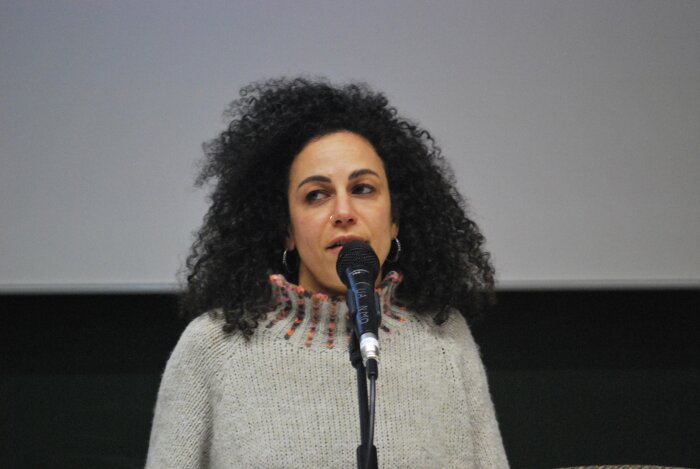 Danya Nadar - moderator
Danya Nadar - moderator -
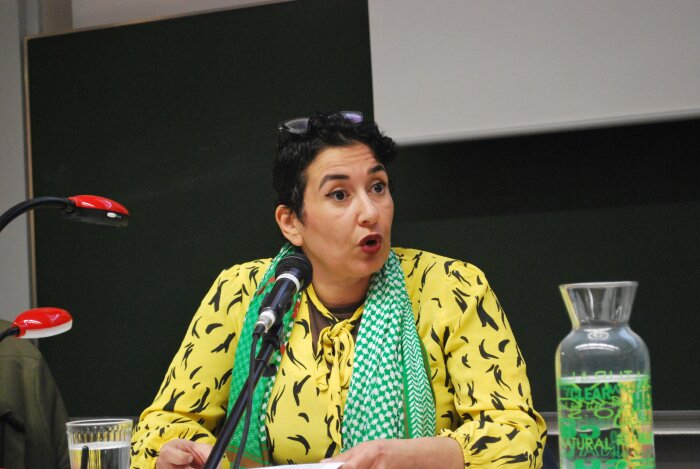 Miriyam Aouragh - invited speaker
Miriyam Aouragh - invited speaker -
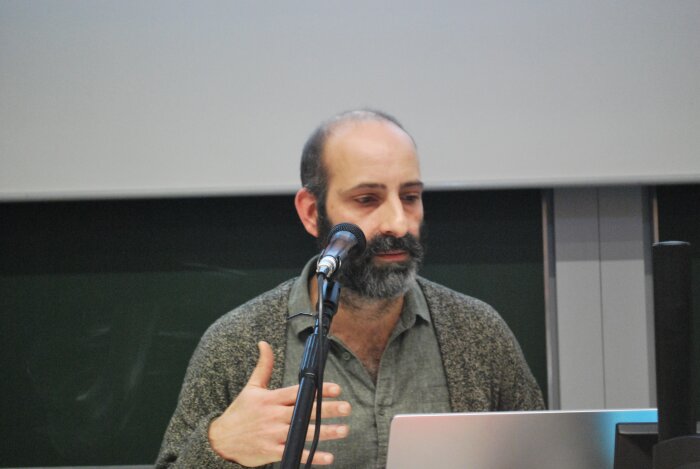 Omar Jabary Salamanca - invited speaker
Omar Jabary Salamanca - invited speaker -
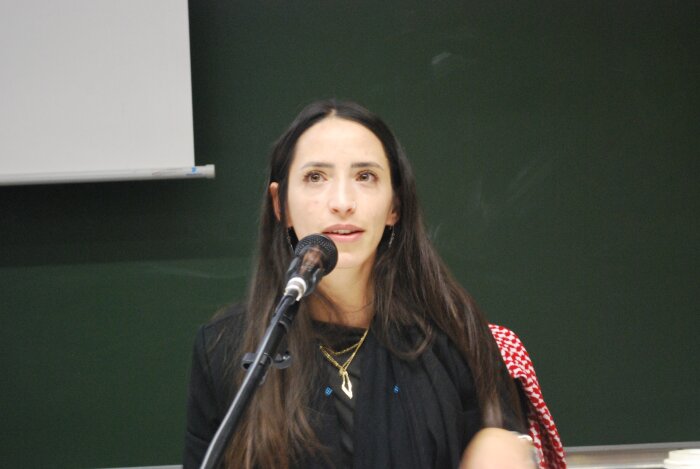 Baraa Odeh - invited speaker
Baraa Odeh - invited speaker -
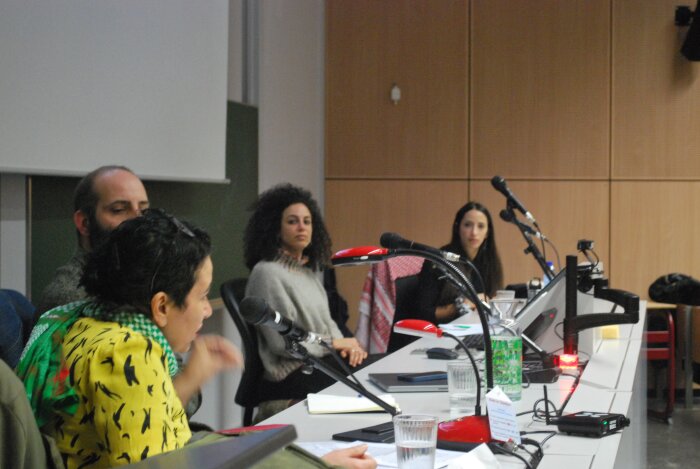 Panel
Panel -
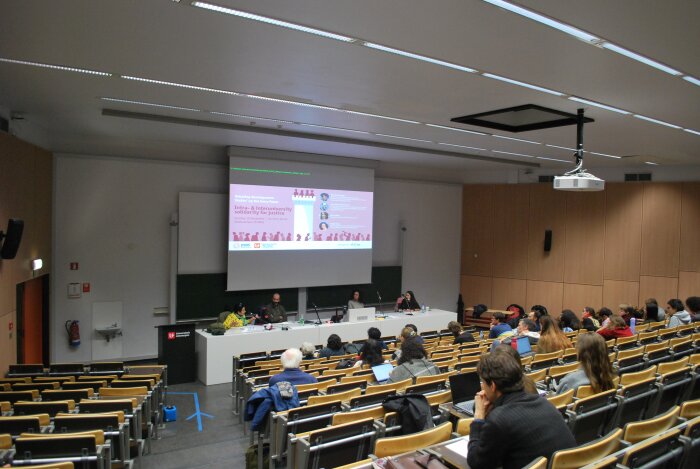 Panel
Panel
Abstract and bio's
This final session explores the interconnectedness of various social justice struggles within the university context, specifically focusing on struggles for anti-racism, anti-capitalism, anti-sexism and the broader quest for solidarity with the Palestinian people against occupation, oppression and for the liberation of Palestine. The invited speakers will examine the ways in which student movements have historically and still presently serve(d) as catalysts for solidarity and activism, bringing together voices from different movements (across different universities and beyond universities) to struggle against various forms of oppression and systemic injustices. By emphasizing these intersectional struggles, participants will engage in critical discussions on the potential for collaborative efforts to affect meaningful change within the university and beyond. Key themes will include the role of education in challenging systemic injustices, the impact of intersectionality on solidarity and advocacy strategies, and the challenges and opportunities that arise when various social justice movements converge. We invite all participants, including students, staff members to share insights, experiences, and strategies for fostering an inclusive approach to transforming the university setting. As the final session we seek to inspire participants to envision and work towards a more just, equitable, and liberated world, recognizing the integral responsibility and limitations of universities in these transformative endeavors.
Invited speakers
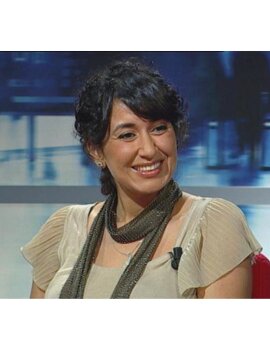
Miriyam Aouragh (Amsterdam, Dutch-Moroccan) is Professor at the University of Westminster in the UK. Aouragh has a background in anthropology (Vrije Universiteit Amsterdam, Goldsmiths College London, Birzeit University Palestine). She studies the role of social media and activism in Palestine and the Arab Revolutions, and publications include Palestine Online (IB Tauris 2011), The Arab Revolution a decade on (TNI 2022), and Mediating the Makhzan (2024) and Infrastructures of Empire (SAGE, 2025). From this expertise, Miriyam Aouragh also engages in the public debate on colonialism, anti-racism and Big Tech capitalism. She is critical of the co-optation of anti-racist themes by business and institutional diversity politics, as decolonisation presupposes anti-colonial struggles and the structural tackling of inequality. Among the contributions she wrote are "'White privilege' and shortcuts to anti-racism" (Race & Class, 2019) and "Towards a theory of radical kinship" (Race & Class, 2023).
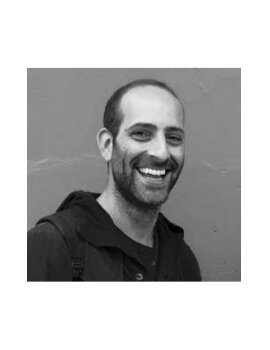
Omar Jabary Salamanca is a senior research fellow and co-director of the Observatory of the Arab and Muslim Worlds at the Université libre de Bruxelles. As a political geographer, his work is focused on the contested forms of uneven development and governance through time, space, matter and bodies. His research, writing and teaching is rooted within critical geography and crosses the fields of urban studies, political ecology and Palestinian and Middle East studies. He is currently completing a book manuscript on the political lives of infrastructure in Palestine to be published by Verso Books. Prior to joining the ULB, Omar was FWO Research Fellow and Lecturer in the Department of Conflict and Development at Ghent University and a Global Marie Curie Fellow in the Department of Middle Eastern, South Asian, and African Studies at Columbia University. Omar serves on the editorial board of Arab Urbanism and Jadaliyya Cities; the international advisory boards of Antipode and ACME; and the steering committee of the International Critical Geographies Group. He was also an initiator of the Slow Science collective and the Eye On Palestine Arts and Film Festival in Belgium.
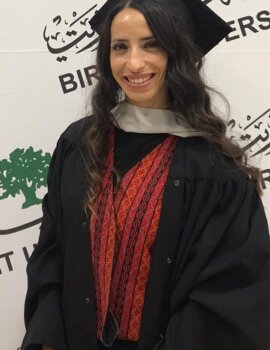
Baraa Odeh is an activitst and part of the student movement for postgraduate students at Birzeit University, as well one of the founders of the Community Psychology Student Club, and currently working in the field of development and humanitarian work.
Moderator
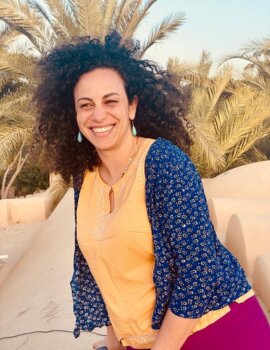
Danya Nadar is a PhD candidate affiliated with the Institute of Development Policy (IOB) at the University of Antwerp. Danya worked as a documentary film and news producer focusing on social and political economy topics in North Africa and east of the Mediterranean, and where she is also part of the revolutionary media collective mosireen.org. In 2018 she switched careers to pursue her passion: conducting research alongside Indigenous peasant farmers. She was a research fellow (2019-2020) at the International Development Research Centre in Canada which allowed her to continue the research she had started in occupied Palestine (2018-2019) on ancestral knowledges related to seeds, land tenure, gendered social dynamics, and alternative/parallel food networks. Her current research focuses on the ways agricultural technologies and knowledge transfers contributed to processes of radicalized land dispossessions of Palestinian and Indigenous Guatemalan ancestral territories; and how ancestral ecological knowledges have been used as a way to push back against capitalist accumulation and colonization.